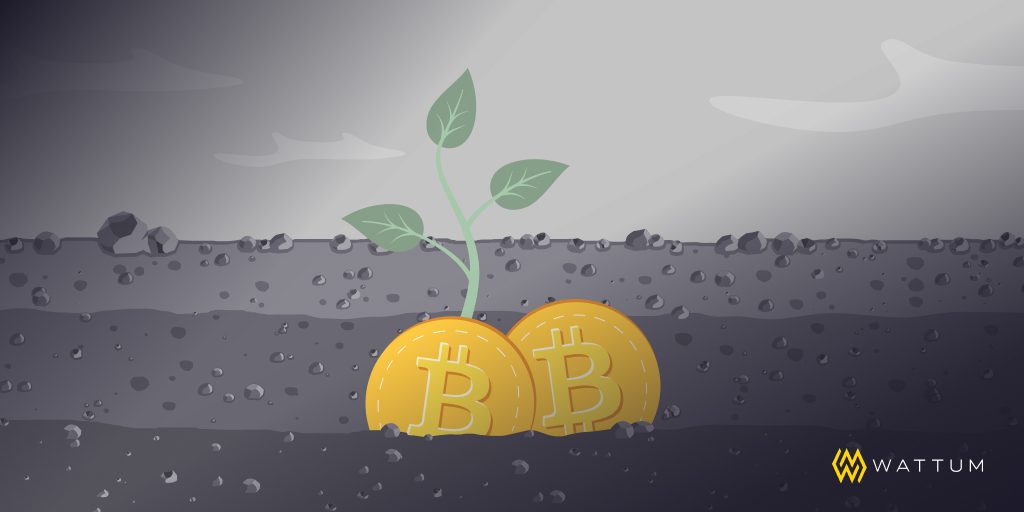Across much of Bitcoin’s history, its mass adoption curve has unfolded as a battle of competing narratives, and also a push against certain counternarratives. For a while now, Bitcoin has struggled to shake its environmental stigma despite a rapid and unprecedented wave of green innovation that has occurred across the Bitcoin mining space, particularly in terms of renewable energy use. In the eyes of most mining enthusiasts, Bitcoin mining is as clean and sustainable right now as it has ever been, and will only become more so moving forward. But for many others – including large institutional investors beholden to environmental, social, and governance mandates, collectively known as ESG – Bitcoin remains an environmental boogeyman, which has made for an obstacle to mass adoption both serious and seriously outdated.
At least Bitcoin mining’s ongoing green transformation has been getting more coverage as of late. In 2021, the New York Times estimated the percentage of renewable mining at a wide but impressive 40–75%. More recently, the Bitcoin Mining Council (BMC), the members of which constitute a self-estimated 50.5% of the entire Bitcoin network’s hashrate, revealed in its Q2 report that the sustainable mining power mix for the network had risen to 59.5% – up 2% since Q1 and 60% year-over-year. In addition, this coincided with a rise in overall mining efficiency to the tune of 46%, with network hashrate up 63% over the last year, despite a network energy increase of only 37%. According to Michael Saylor, founding member of the BMC, Bitcoin mining has become 5,814% more efficient than it was just eight years ago. In its report, the BMC added that Bitcoin mining was “one of the most sustainable industries globally.”
So why the continuing mixed rap for mining, Bitcoin, and proof-of-work crypto, despite things trending so heavily in the right direction? Unfortunately, it’s typically those who understand Bitcoin and crypto the least that maintain this reflexive and outdated view of them as being purely wasteful or environmentally harmful. In order to better understand Bitcoin’s relationship to environmental, social, and governance issues, let’s first explore the Bitcoin mining industry’s ongoing evolution toward not only increased hardware efficiency, but also energy renewability and sustainability.
Environmental
When it comes to Bitcoin, its environmental impact usually receives the most focus, and the most scrutiny. Bitcoin has fought to fully overcome its environmental reputation for years, even as the mining industry has rapidly progressed to embrace and even fuel renewable energy use and development – wind, solar, hydro, and geothermal, in particular. Proof-of-work crypto in general and Bitcoin in particular have offered easy targets for cherry-picked stats that compare their overall energy consumption to small countries, even though Bitcoin uses far less total energy than many other related industries, like gold mining or even traditional banking. Just last month, for example, a group of six US lawmakers penned a letter to both the EPA and the DOE warning about increased crypto mining energy consumption in the US, citing a rise in the US share of global Bitcoin hashrate from 4% to almost 38% between August 2019 and January 2022, as well as a planned increase in mining capacity of almost 230% by the seven largest US Bitcoin mining companies over the next few years.
As energy consumption concerns over crypto mining are often reasonable enough, it’s important to remember that things are steadily heading in an even more sustainable direction – and much more quickly than most other industries, almost all of which seem to be held to a completely different environmental standard. Part of this is fueled simply by the economics of mining, as energy supply is one of the few cost inputs that miners can exert any choice over, which has fueled the widespread adoption and development of cheaper energy sources – like wind, solar, and flare gas in Texas, solar and nuclear in Georgia, and hydro in Washington and New York. But it also reflects an active attempt on the part of the community to make Bitcoin and mining as sustainable long-term as the Bitcoin protocol itself: Bitcoin will be mined until 2140 regardless, but what kind of world will it be mined into, and what difficulties will it face?
Social
Unlike its perceived environmental footprint, the potential social impact of Bitcoin usually goes underestimated – except it’s an overestimation of mostly negative environmental impacts, and an underestimation of mostly positive social ones. Because Bitcoin is decentralized and global, it can lend itself to a wide array of local social, political, and economic conditions and challenges. In countries with particularly high inflation and/or weak local currencies, for example, Bitcoin can offer one of the best ways to store value and build and preserve wealth. In fact, almost 90% of the world population was born into a native currency other than the dollar, euro, British pound, Japanese yen, Australian dollar, Canadian dollar, or Swiss Franc. Given that Bitcoin remains attractive to enough people that were born into these seven currencies, it’s easy to envision Bitcoin as a potential financial lifeline to many of those who simply weren’t.
In a similar sense, Bitcoin also offers an important resource to many underbanked people and populations around the world. It’s true that using Bitcoin still requires internet access, which remains far from universal globally or even regionally – although recent efforts are being made toward removing the internet barrier to Bitcoin, so that BTC can be sent or received via text. For now, though, Bitcoin nonetheless provides a store of value and even an expanding form of payment for many millions of people that lack another viable option. Because Bitcoin is trustless and permissionless as well – and thus globally inclusive – it also offers an ideal method to circumvent local bias, prejudice, and inequality, at least in the sense of access to financial services. Though class, race, gender, and other factors still prevent financial inclusion in far too many parts of the world, Bitcoin is always available to anyone with internet access.
Governance
As with many of the social benefits of Bitcoin, the more specific political and governmental advantages typically go overlooked as well. Bitcoin offers an apolitical way to store and transact value, one that’s also resistant to government intervention by design, which can prove quite essential depending on the political situation governing any given person. In countries with especially rampant political corruption, for instance, Bitcoin provides a vital buffer between individuals and a government that could seize their bank account for unjust reasons – or for no reason at all, simply because it can. With Bitcoin, just as simply, it can’t.
The ongoing situation in Ukraine has offered one real-world example of the utility and importance of transacting value outside of governmental jurisdiction, both as a way to send humanitarian aid into, and also transport assets out of the country, since Bitcoin is apathetic to the political dynamics that develop and change between nation-states. People around the world face vastly unequal levels of political, social, and environmental hardship – and on top of this, environmental issues contain inseparable social and political implications, and vice versa. As such, even Bitcoin’s ongoing environmental impact very much corresponds to a social and political impact as well, since climate change will continue to most affect many of the same countries that have contributed to it the least.
A Greener Future
When will Bitcoin mining’s reputation finally catch up with its increasingly green and socially beneficial operations? Perhaps gradually, then suddenly. So long as the mining industry and the Bitcoin ecosystem continue to embrace efficiency and sustainability moving forward, Bitcoin mining will continue to rebrand itself as inarguably renewable and sustainable – and will only see further mass adoption and institutional investment as a result, even if tentatively at first. As evidence of this just last week, BlackRock, the largest asset manager in the world and a noted ESG advocate, announced a partnership with Coinbase to offer its institutional clients exposure to Bitcoin. It is thus easy to imagine an eventual tipping point when any investment portfolio without Bitcoin comes to be seen as socially irresponsible and incomplete.
Wattum can help you launch or expand your Bitcoin mining operations in a way that’s consistent with your environmental and social ideals. We carry the latest-gen ASIC mining equipment, in addition to offering hosting and buildout services that can help you realize sustainable mining operations. We also offer mobile mining containers, which allow you to set up your mining operations next to the best available energy sources, like flare gas, solar, and wind. For more information about your Bitcoin mining options, get in touch with a Wattum sales representative today.



